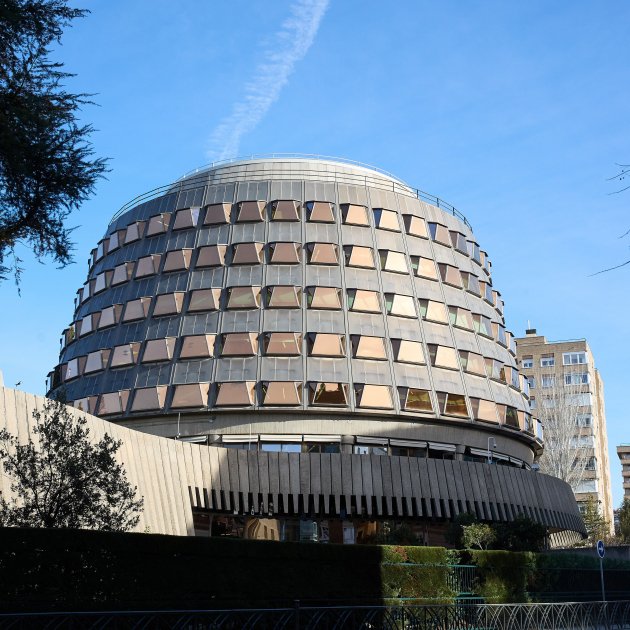The Spanish Constitutional Court has made use of its recently-achieved progressive majority - with seven in favour and four against - to endorse the country's abortion law and reject the appeal that the opposition People's Party (PP) lodged as long ago as 2010. According to sources at the court, the spokesperson judge in the case, the conservative magistrate Enrique Arnaldo, refused to write the new text explaining the arguments of the majority. Now the full court has decided that its progressive vice-president Inmaculada Montalbán will draft the new resolution, which will uphold the relatively liberal abortion law passed by the government of José Luis Rodríguez Zapatero, including its basis in terms of the pregnancy.
In this way, the court is taking a course under which, with the new draft, the decision-making rights of women that are embodied in the law are left intact and full endorsement is given to the 2010 law, which is now subject to a new liberal reform under an initiative from the equality minister, Irene Montero. According to radio network Cadena SER, the court majority rejected the text of Arnaldo, linked to the conservative PP, because it includes phrases taken from other rulings that are close to the anti-abortion argument. For example, that "the termination of a pregnancy is not a woman's exclusive right" or that "life begins at conception".
Arnaldo's withdrawn paper on the term system
Arnaldo's draft ruling protected almost the entire abortion law, endorsing the implementation of the term system, and only claimed the unconstitutionality of Article 17 because he considered that it did not sufficiently guarantee that there was prior informed consent for a woman who terminates a pregnancy. However, the draft did not make any pronouncement on the articles relating to abortion by young women who were minors of age, which is the aspect that was modified by the PP government in 2015.
According to the Zapatero law, a pregnancy can be freely terminated during the first 14 weeks as long as the applicant is informed of her rights, benefits and maternity support. A woman must wait three days from the moment the documentation is delivered until the abortion is carried out. Between 14 and 22 weeks, abortion is permitted if there is a medical diagnosis that justifies it on the basis of fetal malformations or serious illness of the pregnant woman. After 22 weeks, termination can only be allowed when there are abnormalities incompatible with life or a serious or incurable disease is detected at the time of diagnosis.
A week of obstacles
The appeal, paralyzed for 13 years by the division between progressive and conservative wings of the Spanish Constitutional Court, has passed over several obstacles this week. On Wednesday, a meeting of the full court rejected the removal form the question of four judges who participated in the processing of the law, a step which allows the body to reach its quorum and thus to be able to deliberate. The justices said 'no' to the recusals of court president Cándido Conde-Pumpido as well as Juan Carlos Campo, Inmaculada Montalbán and Concepción Espejel due to the lack of legitimacy of the five ex-MPs who proposed it, including former PP minister Frederico Trillo.
The plenary session started on Tuesday and prevented the conservative Espejel from abstaining in the deliberation. She herself had asked for it because she was a member of the General Council of the Judiciary (CGPJ) that issued a report on the law approved by the government of José Luis Rodríguez Zapatero. The court considered that she could take part because it was "more than 12 years ago" that the CGPJ drafted the legal text which, as was detailed, did not entail the approval of any opinion and whose content was not sent to the Spanish government.
